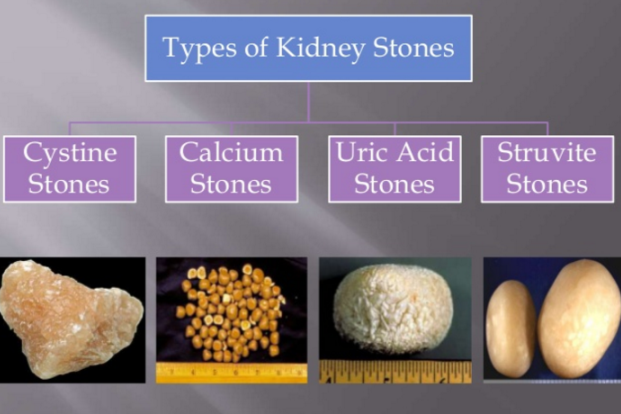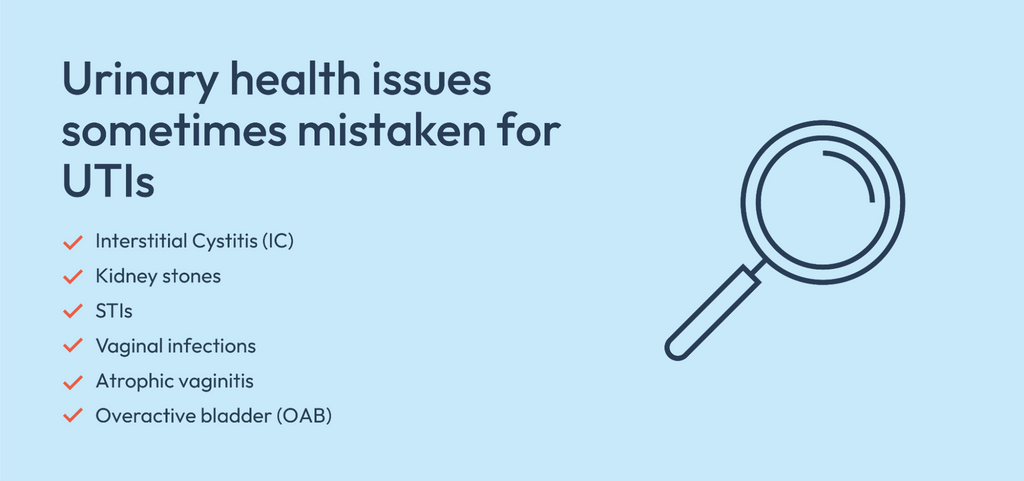Comparing Kidney Stones vs UTI: What You Need to Learn About Their Effect On Health and wellness
Comparing Kidney Stones vs UTI: What You Need to Learn About Their Effect On Health and wellness
Blog Article
Understanding the Secret Differences Between Kidney Stones and Urinary Tract Infections: A Comprehensive Introduction for People
Comprehending the differences between kidney stones and urinary tract infections (UTIs) is important for clients who might be experiencing comparable signs yet deal with greatly different health challenges. As we explore these crucial aspects, it becomes clear that recognizing the unique features of each condition can greatly influence individual results.
Introduction of Kidney Stones
The formation of kidney stones, a excruciating and usually devastating condition, underscores the critical relevance of preserving renal health. Kidney stones, likewise known as kidney calculi, are strong masses that develop from crystals in the pee. These stones can differ in size from a grain of sand to a golf ball and can live in any type of component of the urinary system. The key types of kidney stones include calcium oxalate, calcium phosphate, uric acid, struvite, and cystine stones, each with distinctive reasons and threat factors.
A number of variables add to the development of kidney stones. In addition, metabolic problems and particular clinical conditions might predispose individuals to stone development.
Signs and symptoms of kidney stones can consist of serious flank queasiness, pain, and hematuria, which typically prompt immediate medical assessment. Treatment choices differ, varying from increased fluid consumption and dietary alterations to medical treatments such as lithotripsy or surgical removal, depending upon the size and area of the stones. Comprehending these facets is necessary for efficient avoidance and monitoring.
Overview of Urinary System System Infections
Urinary system system infections (UTIs) represent a typical yet substantial health and wellness concern, influencing millions of people every year. These infections take place when bacteria get in the urinary system, that includes the kidneys, ureters, bladder, and urethra. Most of UTIs are triggered by Escherichia coli, a kind of microorganisms commonly discovered in the intestinal system. While UTIs can impact any individual, they are particularly widespread in females as a result of physiological distinctions that assist in bacterial entrance.
The threat factors for creating a UTI consist of sex-related task, specific types of birth control, urinary system retention, and a background of previous infections. Uncomplicated UTIs are normally restricted to the bladder and are more common in healthy people, while complex UTIs may entail the kidneys and occur in those with underlying health problems.
Motivate medical diagnosis and therapy are necessary to prevent problems, such as persistent infections or kidney damage (Kidney Stones vs UTI). Generally, UTIs are treated with antibiotics, and preventative actions can be utilized for those with regular occurrences
Common Signs And Symptoms Comparison
Symptoms of urinary system infections and kidney stones can commonly overlap, leading to complication in medical diagnosis. Both problems can provide with pain in the lower abdomen or back, but the nature and area of the discomfort typically vary. In urinary system tract infections (UTIs), clients generally experience a burning feeling throughout peeing, frequent prompts to urinate, and gloomy or strong-smelling pee. This Site On the other hand, kidney stones have a tendency to cause serious, acute pain that emits from the back to the lower abdominal area and groin, usually called colicky discomfort.
In addition, UTIs may be gone along with by fever and cools, specifically in a lot more serious instances, while kidney stones can lead to nausea and vomiting as a result of extreme pain. Both problems can cause blood in the pee (hematuria), however the existence of blood is much more generally related to kidney stones. While discomfort during urination is a hallmark of UTIs, kidney stones commonly provide with even more acute pain episodes, which might go and come. Comprehending these symptom differences can help clients in recognizing their condition, although medical assessment remains crucial for exact medical diagnosis and therapy.
Medical Diagnosis Techniques
Exactly how can health care experts accurately distinguish between kidney stones and urinary tract infections? The diagnostic process begins with a detailed clinical history and a comprehensive evaluation of the person's symptoms. Clinicians typically execute a physical evaluation, which might reveal tenderness in the abdomen or flank area, leading the diagnostic path.
Research laboratory tests play an important duty in distinguishing between these two conditions. Kidney Stones vs UTI. A urinalysis can identify the presence of blood, crystals, or microorganisms, which are indicative of either condition. In cases of urinary tract infections, the urinalysis may reveal a significant visibility of leukocyte and nitrites, while kidney stones may offer with specific crystals
Imaging research studies, such as stomach check my blog ultrasound or computed tomography (CT) scans, are essential for envisioning kidney stones. These imaging strategies enable doctor to analyze stone dimension, place, and prospective obstructions in the urinary tract. In contrast, urinary system infections normally do not need imaging unless issues are suspected.
With each other, these diagnostic techniques encourage medical care professionals to accurately differentiate and identify in between kidney stones and urinary system system infections, ensuring that people obtain suitable treatment and administration.
Therapy Options and Prevention
While both kidney stones and urinary system system infections (UTIs) need punctual therapy, their management approaches vary significantly.
The therapy for kidney stones typically entails discomfort management, hydration, and sometimes, clinical procedures such as extracorporeal shock wave lithotripsy (ESWL) or ureteroscopy to eliminate or damage down stones. People are frequently encouraged to increase liquid intake to facilitate stone passage and lower recurrence. Dietary adjustments might also be necessary, depending upon the stone kind.
In contrast, UTIs are primarily treated with prescription antibiotics to eliminate the microbial infection. The particular antibiotic prescribed relies on the germs identified and neighborhood resistance patterns. Additional measures, such as boosted fluid consumption and urinary anesthetics, might help ease symptoms.
Avoidance approaches differ too; for kidney stones, maintaining adequate hydration and adhering to dietary restrictions can be reliable. For UTIs, preventative strategies consist of proper hygiene methods, peing after sexual intercourse, and possibly preventative anti-biotics for reoccurring infections. Comprehending these treatment and prevention modalities is vital for efficient monitoring and to lessen the danger of issues associated with both conditions.
Final Thought

Understanding the distinctions in between kidney stones and urinary system infections (UTIs) is vital for patients who might be experiencing comparable signs and symptoms yet encounter greatly various health obstacles. The primary types of kidney stones include calcium oxalate, calcium phosphate, uric acid, struvite, and cystine stones, each with distinctive causes and danger variables.

Report this page